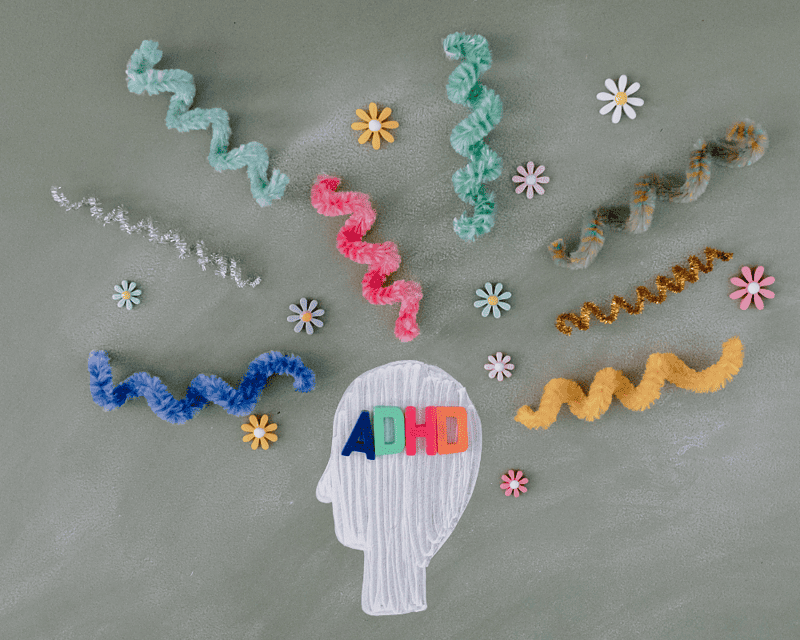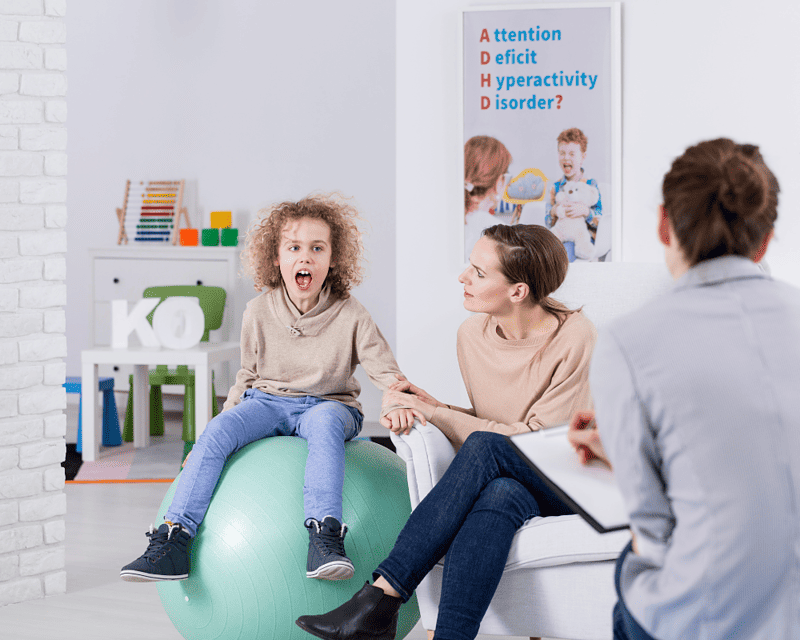Attention Deficit Hyperactivity Disorder (ADHD) is a neurodevelopmental disorder affecting millions worldwide. The prevalence of ADHD has increased over the years, with more and more parents reporting their children’s behavioural issues as early as preschool age and more adults requesting Adult ADHD assessment since the common signs of ADHD have been more widely discussed. However, not all children who exhibit hyperactive or impulsive behaviours have ADHD. Understanding the difference between normal childhood behaviours and those that may indicate an underlying condition is crucial in identifying and managing ADHD.
This article aims to provide an overview of ADHD, its symptoms, and how it affects individuals’ daily lives. It will also delve into the different types of ADHD, ADHD assessment and risk factors associated with the condition.
The prevalence of ADHD in children

ADHD is a neurodevelopmental condition that affects children’s attention, behaviour, and impulse control. ADHD is one of the most common neurodevelopmental disorders affecting children worldwide. According to the Centers for Disease Control and Prevention (CDC), approximately 1 in every 10 children between the ages of 5-17 years old has been diagnosed with ADHD.
The prevalence of ADHD in boys is higher than that of girls, with about twice as many boys being diagnosed with the disorder. Additionally, research shows that genetic and environmental factors play a role in developing ADHD. Children with a family history of ADHD are likelier to develop it. Additionally, exposure to toxins such as lead during early childhood can increase the risk of developing ADHD.
While there is no cure for ADHD, there are several treatment options available that can help manage its symptoms.
Symptoms: Common signs of ADHD
One of the most common symptoms of ADHD is difficulty focusing on tasks for an extended period. People with ADHD often find it challenging to engage in activities that require sustained attention, such as reading or studying. They may get easily distracted by external stimuli like sound, movement, or even their thoughts.
Another symptom of ADHD is hyperactivity, which manifests itself in the form of restlessness and excessive fidgeting. People with ADHD may feel a constant urge to move around or engage in physical activity even when it’s not appropriate.
ADHD Assessment

ADHD can significantly impact an individual’s daily life, including academic performance, social interactions, and work productivity. As a result, it is essential to identify and diagnose the disorder early on to ensure appropriate treatment.
A children’s adhd assessment process involves several steps and typically begins with a comprehensive evaluation of the individual’s medical history and current symptoms. The assessment may also involve interviews with parents or caregivers as well as teachers or other professionals who interact with the individual regularly. Additionally, various rating scales and tests may be administered to assess cognitive functioning, attention span, impulse control, and overall behaviour. It’s also possible to discover whether you have ADHD at an older age, as you can take a neurodivergent test both online and in person, although only a doctor can make a formal judgement on the matter.
Misdiagnosis: Other conditions that mimic ADHD
The symptoms of ADHD include having difficulty paying attention, easily getting distracted, being forgetful, acting impulsively, and having trouble completing tasks. However, these symptoms can also be present in other conditions or disorders that can mimic ADHD.
One such condition is anxiety. Anxiety disorders like Generalized Anxiety Disorder (GAD) and Social Anxiety Disorder (SAD) can cause symptoms similar to ADHD, such as difficulty concentrating and restlessness. Moreover, anxious thoughts may lead to distraction and procrastination, often misunderstood as signs of ADHD. Additionally, people with anxiety may experience physical sensations such as heart palpitations that further exacerbate their inability to focus on tasks.
Another condition that can mimic ADHD is depression.
Treatment options: Medication, Therapy, and Nutritional Focus Supplements for Kids
Managing ADHD in children often requires a multifaceted approach, combining medication, therapy, and, increasingly, a focus on nutritional supplements.
Medication Options for ADHD
One prevalent method in addressing ADHD symptoms is through medication. Stimulants, like Adderall and Ritalin, are commonly prescribed to enhance concentration and diminish hyperactivity in kids. These medications, while effective, may lead to side effects such as decreased appetite and sleep disturbances. For those who find stimulants unsuitable, non-stimulant options like Strattera offer an alternative pathway, potentially reducing the likelihood of such side effects.
The Role of Therapy in ADHD Management
Therapy, particularly behavioural therapy, plays a critical role in supporting children with ADHD. This form of therapy guides them in developing strategies to cope with their symptoms, fostering positive habits. It’s about managing symptoms and empowering children with ADHD to thrive in their daily lives.
Exploring Nutritional Focus Supplements for Kids with ADHD
Beyond conventional treatments, there’s a growing interest in nutritional focus supplement for kids with ADHD. For families exploring treatments beyond medication, such supplements can be a game-changer. They often contain ingredients aimed at enhancing cognitive function and overall brain health.
On a personal note, as a parent with one child diagnosed with ADHD and another suspected to have it, I’ve navigated these treatment options firsthand. While medication has its place, it’s not a one-size-fits-all solution. We’ve seen notable improvements in one of our children through probiotics and specific herbs – a regimen arrived at after extensive research. This experience underlines the potential of nutritional focus supplements for kids with ADHD, offering an alternative or supplementary treatment avenue.
Coping strategies: Tips for parents and caregivers
ADHD can be a challenging condition to manage, both for the child and their caregivers. Children with ADHD often struggle with impulsiveness, hyperactivity, and difficulty paying attention, which can cause frustration and stress for parents and caregivers. However, with the right coping strategies, parents can help their children manage their symptoms effectively.
One strategy that can help provide structure and routine in the child’s daily life. This could include setting regular bedtimes and mealtimes, creating a homework schedule or using visual aids to help the child stay on task. It may also be helpful to break larger tasks into smaller chunks to make them more manageable for the child.
Another effective coping strategy is practising patience and positive reinforcement. We have also found EFT (Emotional Freedom Technique, also known as tapping) to be effective in helping students focus on school.
Long-term implications: The impact of untreated ADHD

When left untreated, ADHD can have long-lasting effects on one’s life, including mental health problems, social difficulties, and academic or occupational underachievement. According to a study published in the Journal of Attention Disorders, children with untreated ADHD are at higher risk for developing anxiety disorders, depression, and substance abuse later in life.
Untreated ADHD can also lead to social difficulties, as people with the condition may struggle with impulse control and maintaining relationships. They may interrupt others frequently during conversations or act impulsively without considering the consequences. These behaviours can put a strain on personal and professional relationships over time. Additionally, individuals with untreated ADHD often suffer low self-esteem due to difficulty focusing on tasks or completing them efficiently.
Conclusion: Early intervention is key to managing ADHD
Studies have shown that the earlier the diagnosis of ADHD, the better outcome for individuals affected by it. With early intervention, children can learn effective coping skills and strategies that will help them manage their symptoms better. They can also receive appropriate treatment, such as behavioural therapy or medication.
Parents play a crucial role in the early detection and management of ADHD in their children. They should look for warning signs such as difficulty paying attention, forgetfulness, excessive talking, and being easily distracted or restless.
